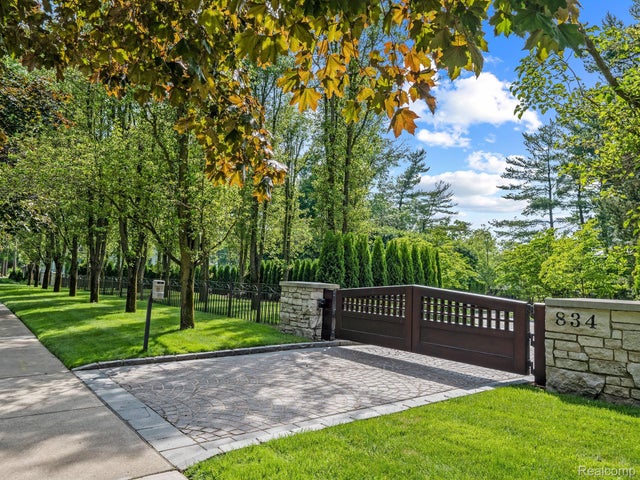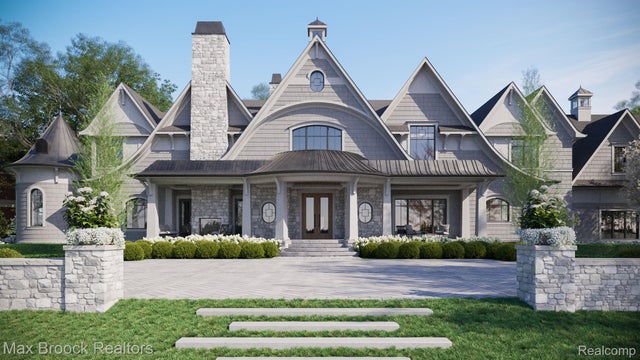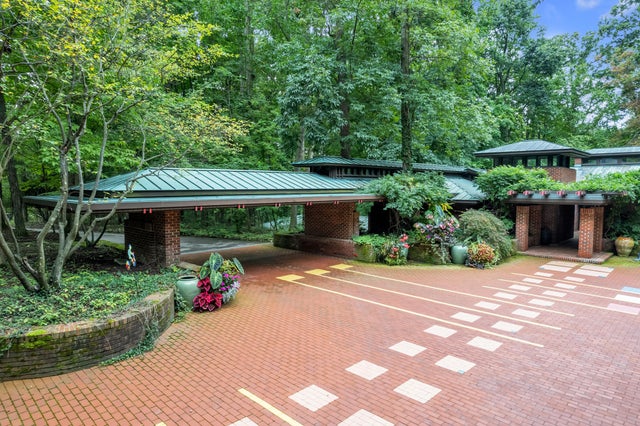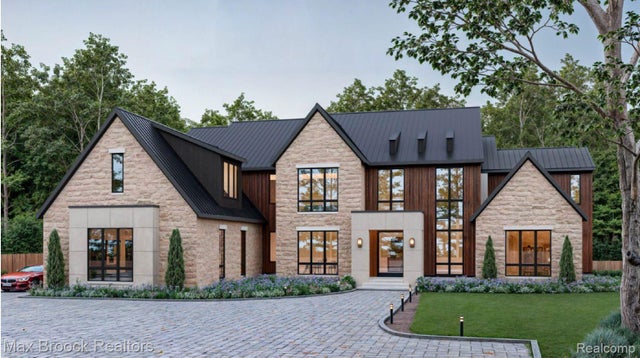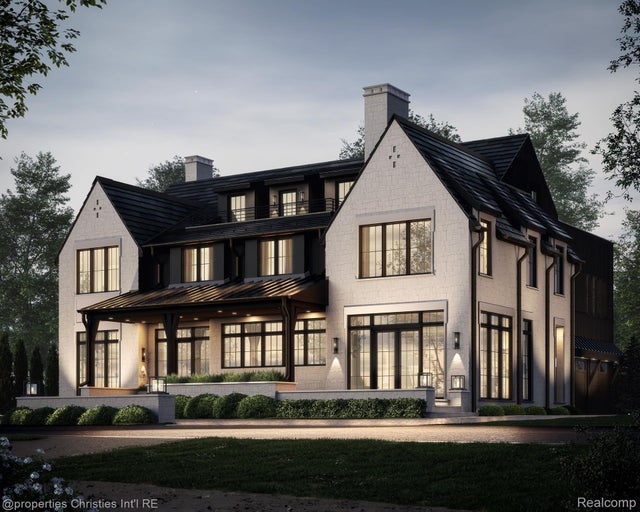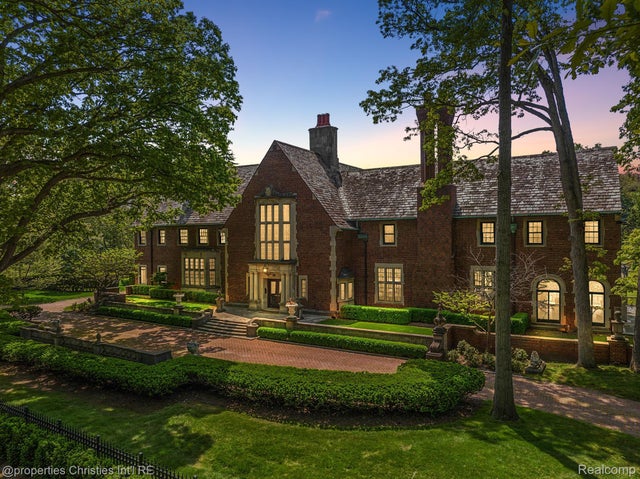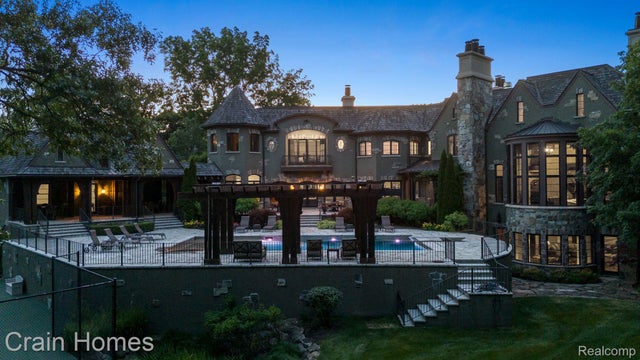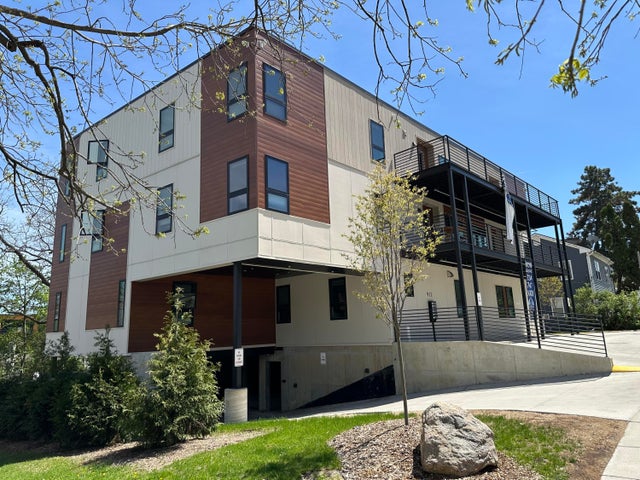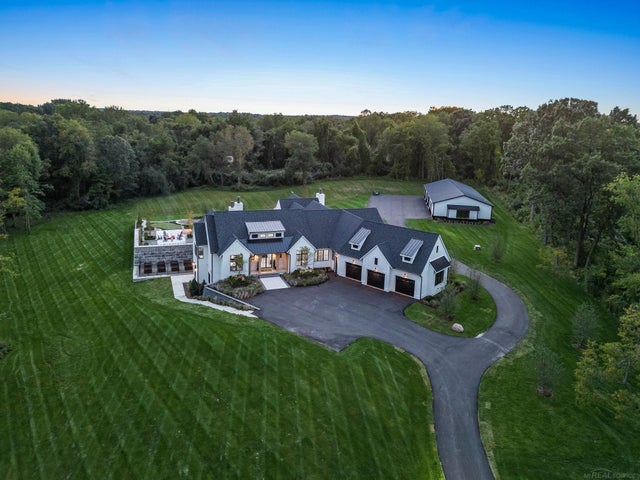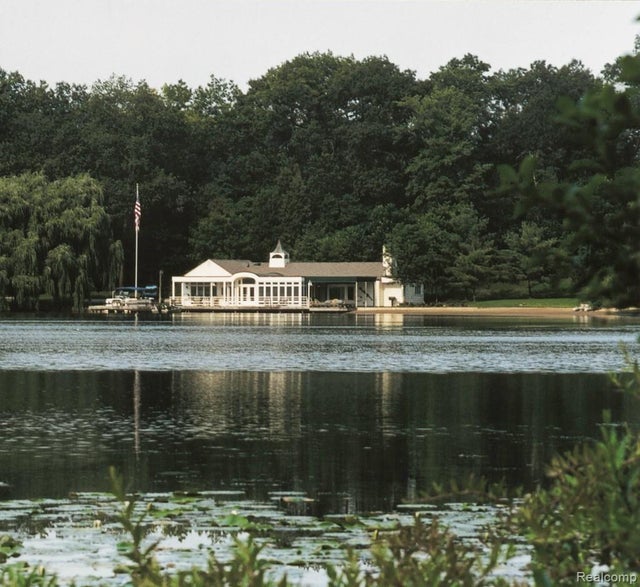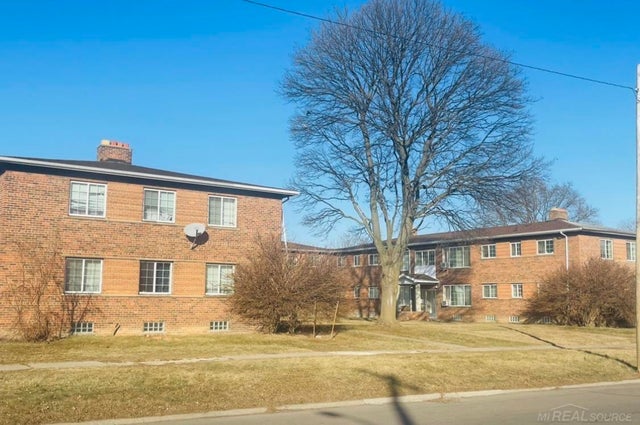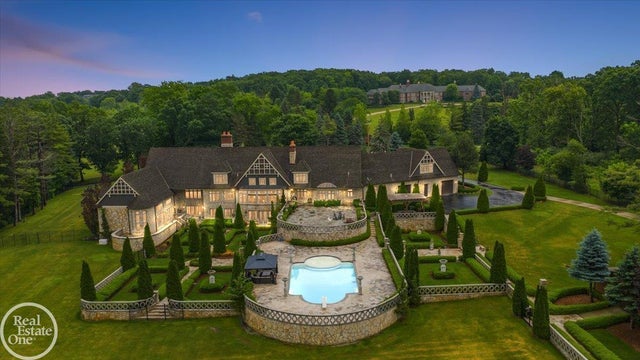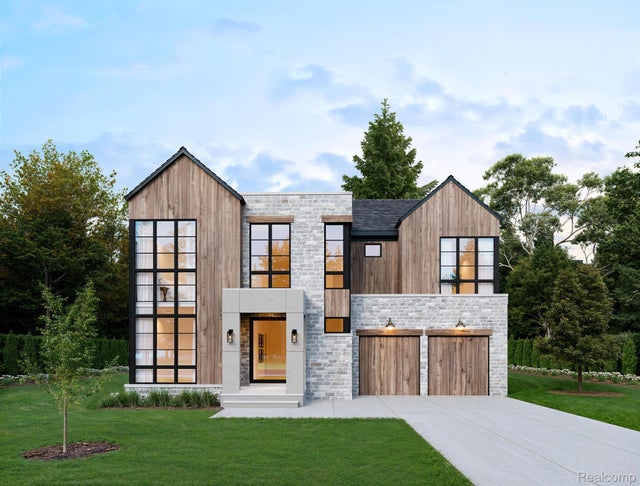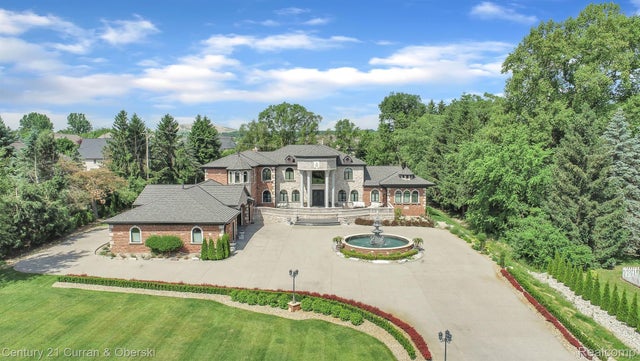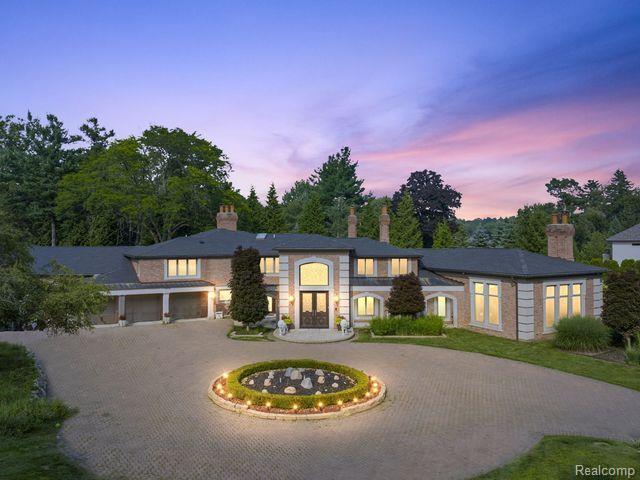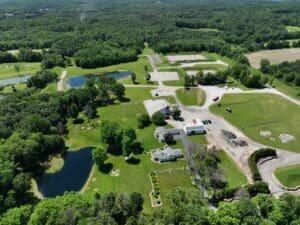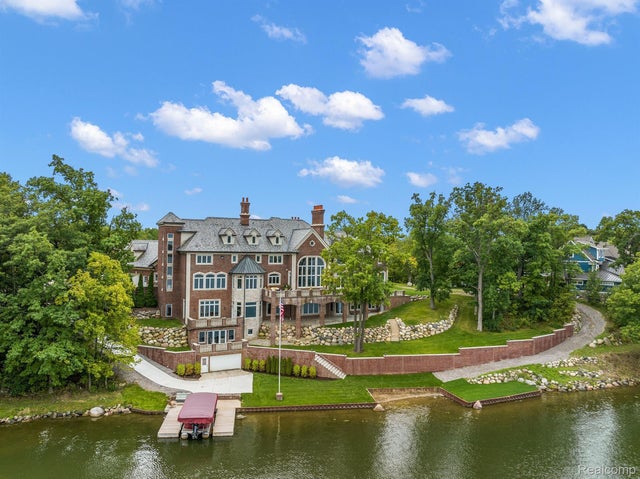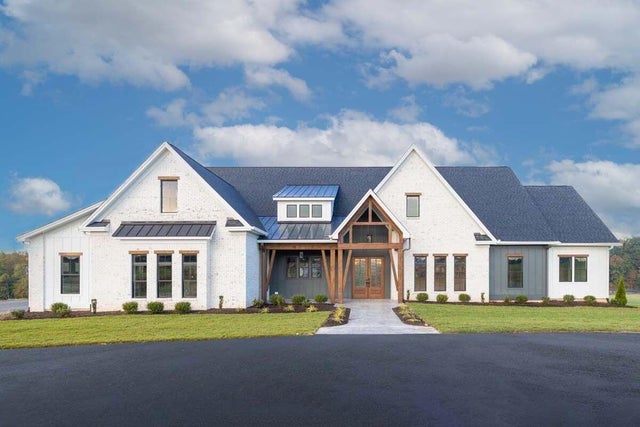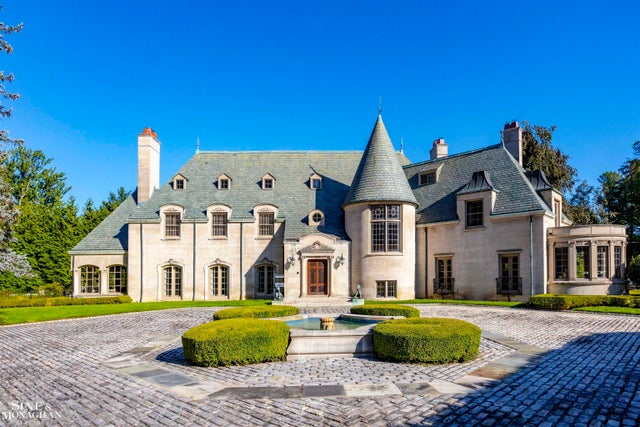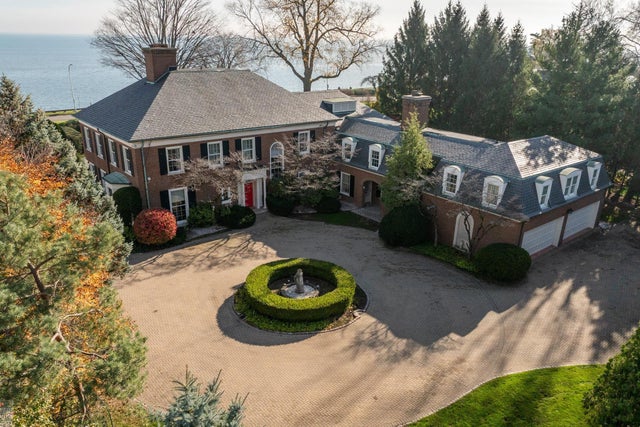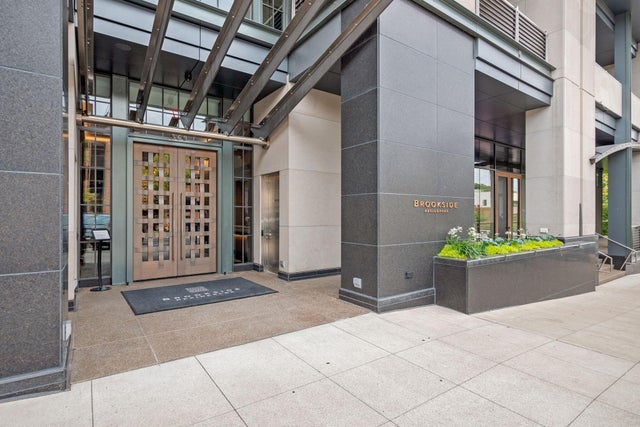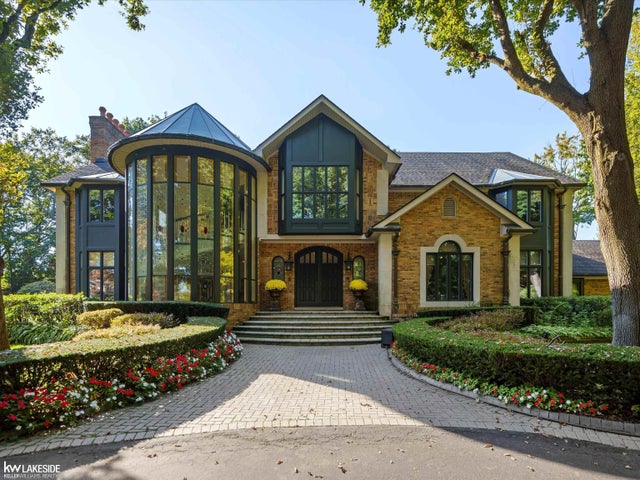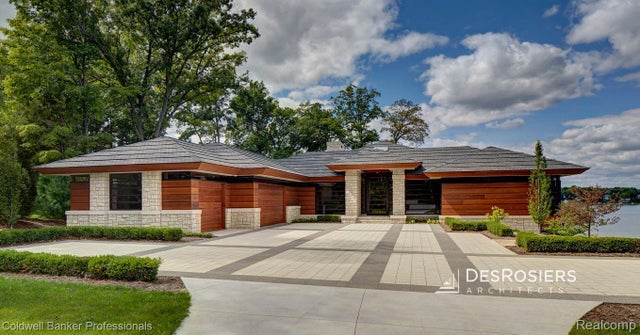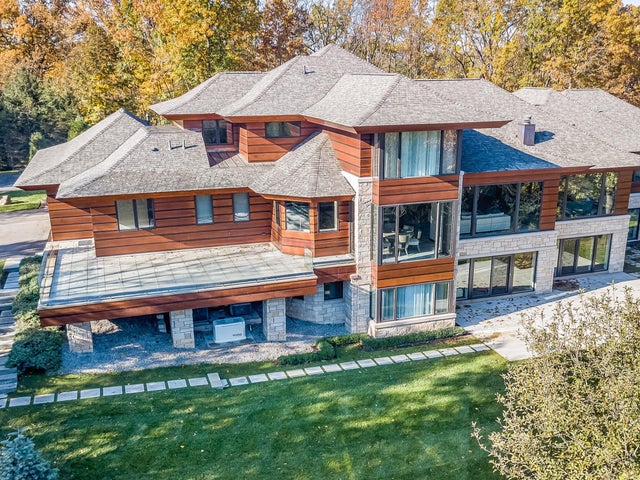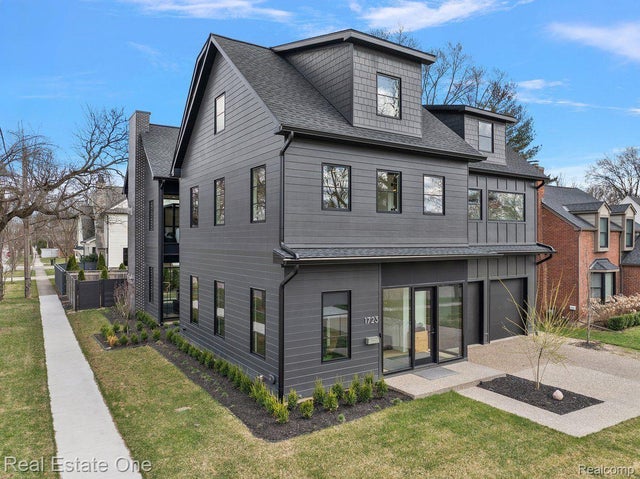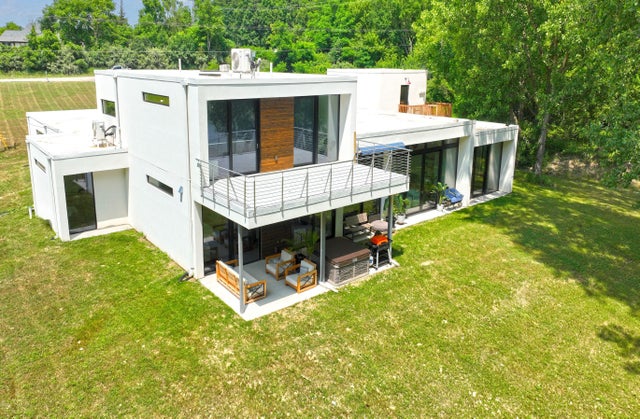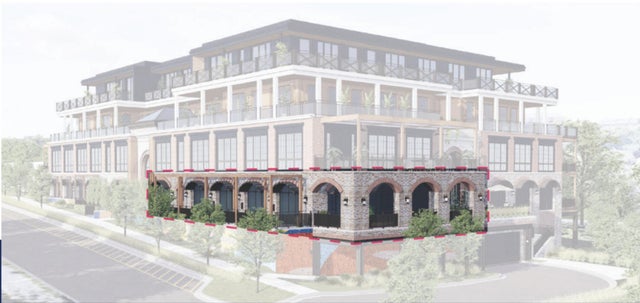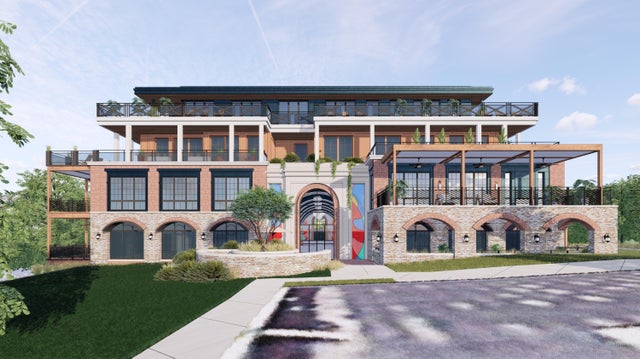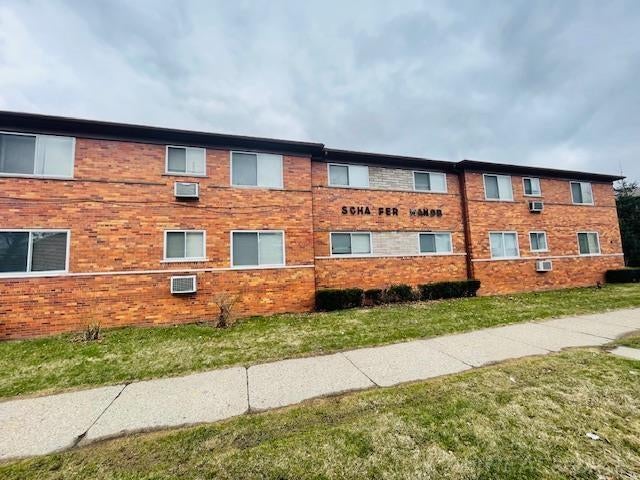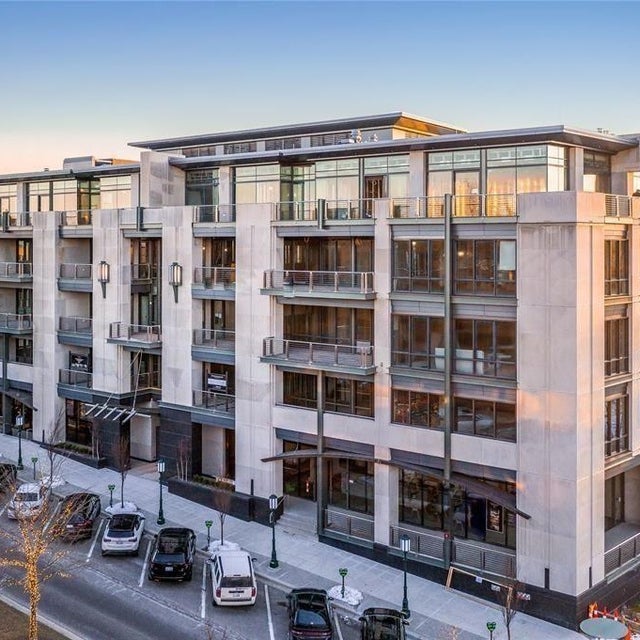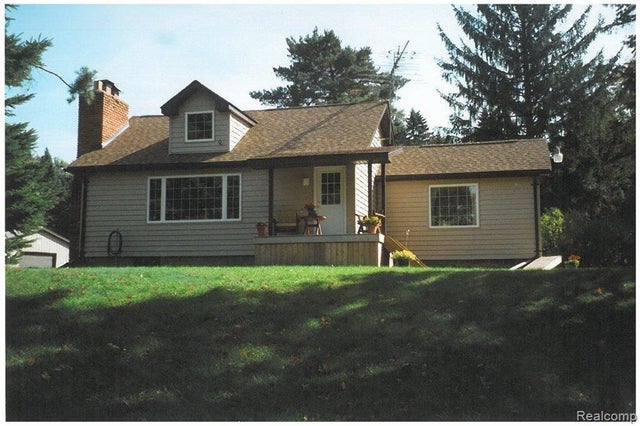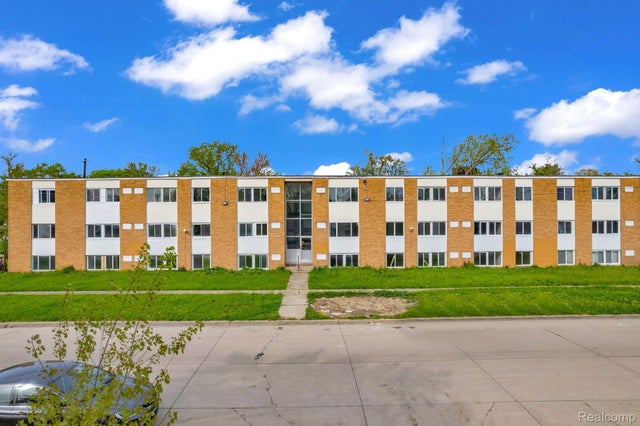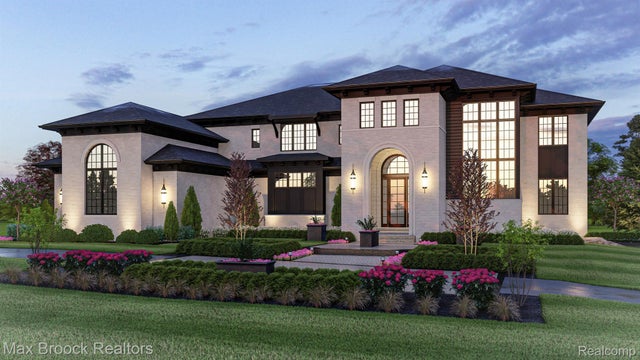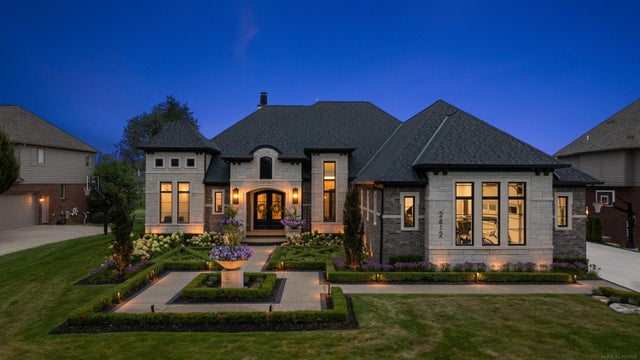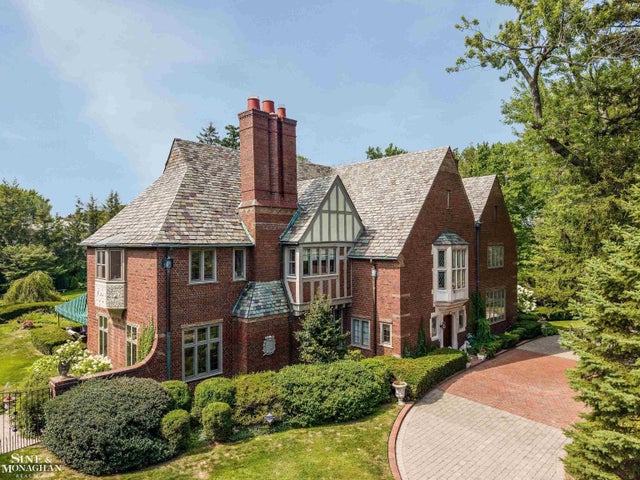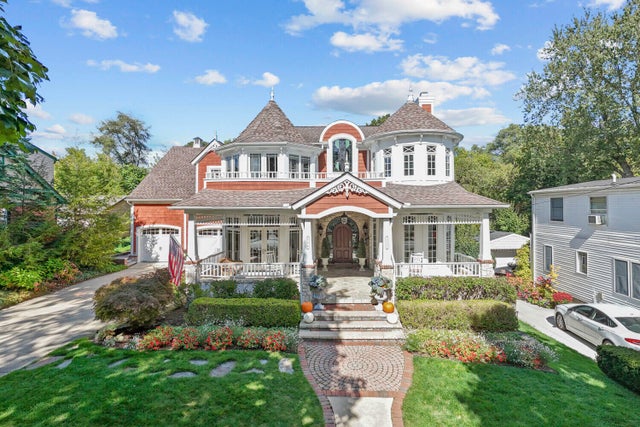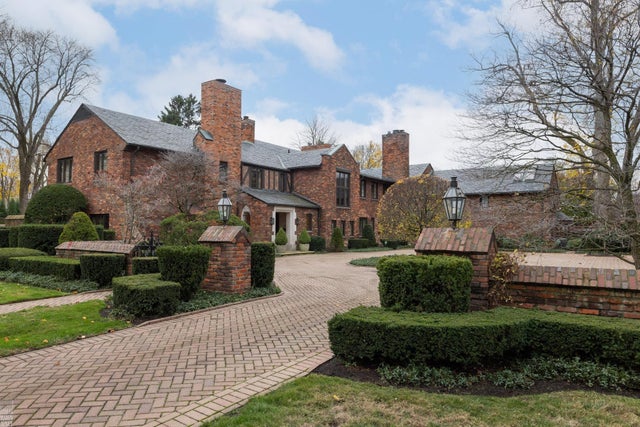For decades, Detroit’s Michigan Central Station stood as a haunting symbol of the city’s decline – a towering Beaux-Arts train depot that opened in 1913 and closed in 1988, then sat empty for years. The once-bustling station, with its grand halls and 18-story office tower, fell into disrepair and became a favorite subject of “ruin photography,” emblematic of Detroit’s hard times. Now, in one of the most dramatic turnarounds of Detroit’s revival, the 112-year-old landmark has been painstakingly restored and reopened to the public in 2024. Locals who remember the station as a graffiti-covered shell are marveling at its rejuvenation, as Ford Motor Company spearheaded a six-year restoration that has returned the depot to its “most pristine state ever”.
The restoration of Michigan Central Station is more than just a polish of old marble and limestone. It’s a full-fledged comeback story for Detroit. Ford purchased the derelict station in 2018 for $90 million, seeing potential in its crumbling walls. After investing over $740 million and collaborating with preservationists and craftspeople, Ford reopened the depot’s doors in June 2024. Thousands of metro Detroiters lined up for open-house tours during the grand reopening, eager to glimpse the opulent Grand Hall and waiting rooms that had been off-limits for decades. The public’s response was overwhelming – in the first year since reopening, the station drew close to 300,000 visitors to experience its architecture, history tours, and community events. Families, former passengers, and new generations alike wandered beneath the soaring ceilings, marveling at details like the restored Tiffany-like clock and ornate plasterwork. For many Detroiters, it was an emotional reunion with a piece of the city’s soul. The station’s revival has truly turned it from an abandoned relic into a civic centerpiece once again.
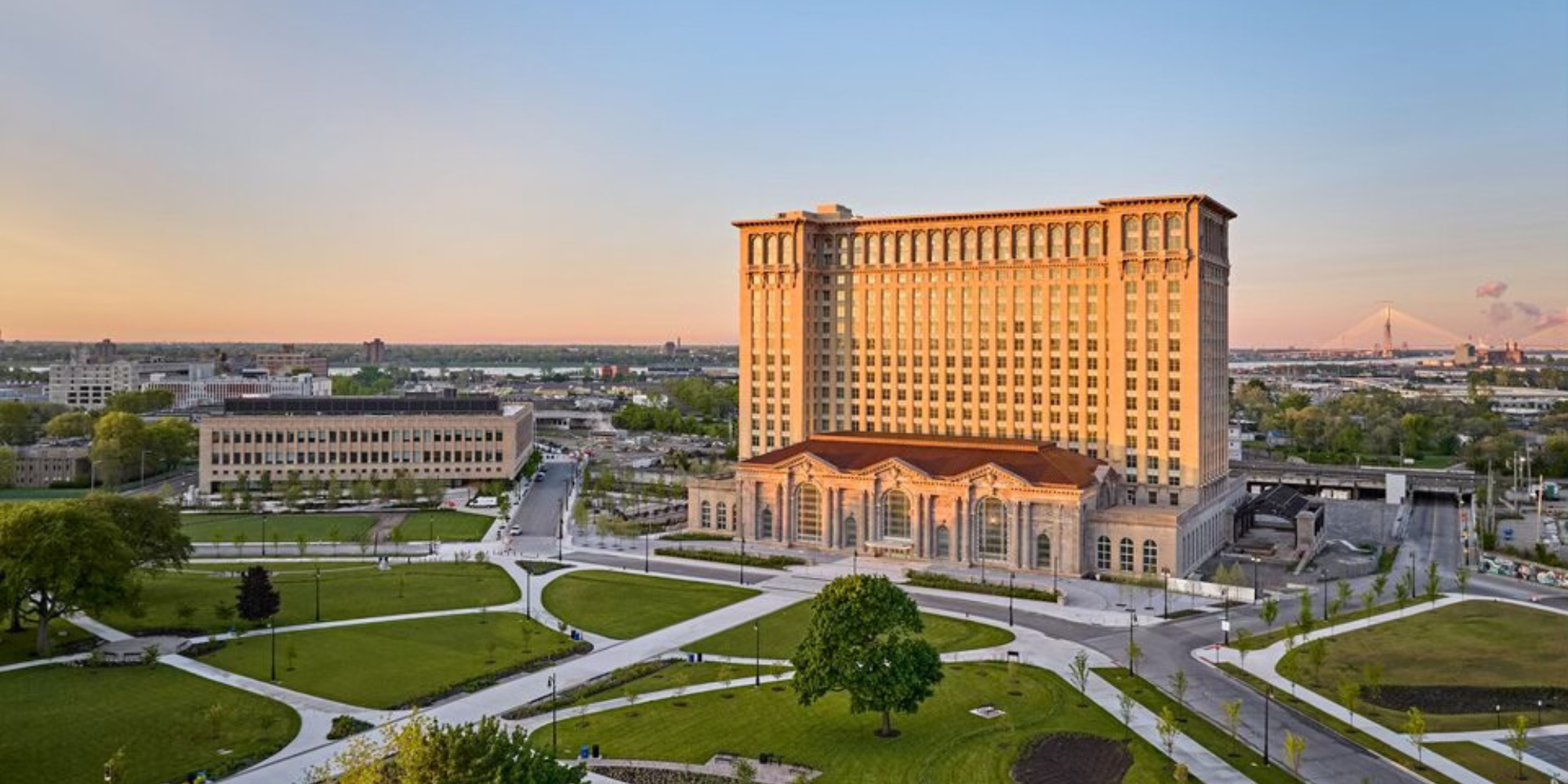 Michigan Central, Facebook
Michigan Central, Facebook
Ford’s Vision: A Tech Hub and Community Anchor in Corktown
The resurgence of Michigan Central Station is not happening in isolation. It’s the crown jewel of a broader Michigan Central Innovation District, a 30-acre campus in Detroit’s historic Corktown neighborhood that Ford is transforming into a high-tech and cultural hub. Under Ford’s plan, the station and surrounding area are becoming a nexus where cutting-edge mobility startups rub shoulders with local entrepreneurs, dining, art, and public space. “We opened Michigan Central Station to the world to create a global innovation hub and a destination symbolizing Detroit’s future,” said Ford Executive Chair Bill Ford, reflecting on the project’s ambitious scope. The company envisions Michigan Central as an “open platform” connecting innovators and the community, ensuring that Detroit’s resurgence is both high-tech and people-focused.
Already, the Michigan Central district is bustling with activity. Ford renovated adjacent structures like The Factory and partnered with Newlab to host over 130 startups on site. The former station itself now houses major tenants including Ford’s own mobility teams, a Google Code Next lab for youth tech education, and even a local café (the recently opened Yellow Light Coffee & Donuts) on the ground floor. According to Michigan Central’s team, since launching the campus in 2023 they have attracted nearly 240 companies into this growing ecosystem. What was once an abandoned train depot is now the linchpin of a district drawing talent from Detroit and beyond. Josh Sirefman, CEO of Michigan Central, noted that the station’s revival is meant to “serve residents and attract visitors as well as inspire entrepreneurs, industry, and creatives”. By blending workspace, public gathering areas, arts programming, and soon hospitality, Michigan Central is designed as a place where local families, tech professionals, and tourists naturally mix.
Crucially, Ford has kept the community at the heart of this vision. The station sits in Corktown, Detroit’s oldest neighborhood, known for its Irish roots, industrial history, and recent hip revival. Corktown has seen a surge of new restaurants, shops, and even other hotels in recent years, and Michigan Central’s rebirth is accelerating that momentum. The station’s once-crumbling Roosevelt Park out front has been revamped into a welcoming green space that acts as Corktown’s front lawn. Throughout 2024, Michigan Central hosted free open-house tours and cultural events, signaling that this isn’t a corporate island – it’s a gathering place. “We felt an obligation and desire for the community to see the building and participate in it,” Sirefman told local media during the opening, emphasizing that the development belongs to Detroiters. Families have been spotted pushing strollers through the Grand Hall and enjoying donuts in the old waiting room, while tech innovators attend meetups upstairs – a true blend of old Detroit and new.
NoMad Detroit: Hilton’s Luxury Lifestyle Hotel Arrives in 2027
Amid this flurry of activity, one announcement has especially excited both local real estate watchers and travel enthusiasts: the station will soon house a NoMad Hotel, bringing a dose of luxury hospitality into the historic depot. In June 2025, Ford and its partners revealed that NoMad Detroit, a nearly 180-room luxury hotel, is set to open inside Michigan Central Station in early 2027. This will mark NoMad’s first location in Michigan and Hilton’s first luxury lifestyle hotel in the United States, making it a flagship project in more ways than one. The hotel will occupy the top five floors of the station’s 18-story tower – floors 14 through 18, which remarkably have never been used until now. For the first time in the building’s century-plus history, guests will sleep in rooms perched high above the Grand Hall, enjoying panoramic views of the Detroit skyline and even across the river to Canada.
Behind the NoMad brand is a unique partnership. NoMad Hotels were originally created by the Sydell Group (famous for trendy lifestyle hotels in New York, Las Vegas, and beyond), and the brand joined forces with Hilton last year in a joint venture aimed at growing NoMad globally. In fact, the Detroit project comes on the heels of NoMad announcing its first Asian location in Singapore, as Hilton and Sydell expand this boutique luxury concept worldwide. Andrew Zobler, the founder and CEO of Sydell Group, is the visionary behind the NoMad ethos. “NoMad has built a reputation for creating hotels that reflect a city’s history, art, and design, and NoMad Detroit will be no exception,” Zobler said of the Detroit project. He noted that Detroit is “a city steeped in history with an incredibly bright future,” and positioned NoMad’s role as part of an “ambitious project that is transforming The Station at Michigan Central into a center for commerce, innovation, community and culture.” In other words, NoMad Detroit isn’t meant to stand apart as an isolated luxury tower – it’s meant to integrate into the local fabric, honoring the station’s heritage while contributing to Detroit’s next chapter.
A Brand Synonymous with Style and Local Flavor
Seasoned travelers might recognize the NoMad name from its acclaimed properties in New York City (which helped revitalize Manhattan’s NoMad district and famously housed an award-winning bar) or in London and Los Angeles. The brand, founded in 2011, is known for upscale, artful design and creative place-making – their hotels often become civic landmarks in their own right. Hilton’s alliance with NoMad signals how important this Detroit project is: it will effectively be Hilton’s luxury debut in Michigan, as one Hilton VP noted, joining the company’s roster of new high-end openings from Costa Rica to Osaka. “This project champions Detroit, rejuvenates a historic landmark and marks Hilton’s luxury debut in Michigan,” said Kara Randall, Hilton’s vice president for luxury development. For Hilton, adding NoMad Detroit means offering its 16-million-plus annual visitors to Detroit a one-of-a-kind stay that combines the reliability of a global hotel network with the bespoke charm of a boutique experience.
One important aspect of NoMad’s philosophy is local collaboration. Each NoMad hotel’s design draws heavily from the host city’s culture, featuring local artists, makers, and even locally sourced materials. In Detroit, this approach will manifest in many ways large and small. The interior designers plan to celebrate Detroit’s creative community by incorporating works from Detroit artists and craftsmen throughout the guest rooms and public spaces. In fact, Michigan Central’s team has hinted that some of the graffiti art that adorned the station’s walls during its abandoned years will be preserved as part of the décor, a nod to the building’s place in Detroit’s urban lore. Sirefman explained that NoMad’s careful renovation will connect “the rich history of Michigan Central Station and the City of Detroit with NoMad’s global spirit,” ensuring the hotel feels at once worldly and very rooted in Detroit. For Detroiters, knowing that elements of the station’s past – from architectural details to street art – will be thoughtfully woven into the hotel’s design is reassuring. It means this luxury hotel won’t erase history; it will embrace it.
.png) Detroit Free Press, Facebook
Detroit Free Press, Facebook
Inside the NoMad Detroit: What to Expect
When NoMad Detroit opens in 2027, guests and locals can look forward to a suite of amenities and experiences carefully tailored to honor the station’s legacy while providing modern indulgence. The hotel will feature nearly 180 guestrooms, including 30 suites with generous layouts. These rooms will occupy the station’s upper stories that have long been vacant, so imagine waking up to sweeping views of Corktown, downtown Detroit, and even the Windsor skyline across the river – a perspective no hotel has offered in Detroit until now. The suites are expected to incorporate some of the station’s unique architectural quirks, possibly including original archways or exposed brick, blended with NoMad’s signature lush furnishings. And of course, all guests will have access to Hilton Honors benefits, since NoMad will be part of Hilton’s portfolio, allowing Detroit’s first NoMad to plug into the chain’s popular loyalty program for ease of bookings and rewards.
Dining and socializing will be a centerpiece of the NoMad experience – and a major boon for Detroit’s culinary scene. NoMad is renowned for its bars and restaurants (the original NoMad in NYC boasted a Michelin-starred restaurant and a bar consistently ranked among the world’s 50 best). For the Detroit location, the hotel team will reimagine the station’s historic restaurant and adjacent carriage house into NoMad’s signature restaurant and bar concepts. The station’s former dining room, with its elegant columns and arches, will likely house an upscale restaurant serving creative fare that nods to Detroit’s local flavors. Meanwhile, the old carriage house – a separate structure once used for horse-drawn carriages – is set to become a chic cocktail lounge or event space under NoMad’s direction. “They’ve [NoMad] received many major awards – 50 best restaurants, 50 best bars, Michelin, James Beard – but it always is accessible, and that’s what we were looking for,” Josh Sirefman said, emphasizing that the hospitality will be “luxurious yet accessible.” In other words, expect top-notch food and drink that will draw in global travelers and welcome Detroit locals who just want to stop by for a special night out. The aim is for NoMad’s Detroit restaurant to become a destination in itself, the kind of place Corktown neighbors might visit for an anniversary dinner or professionals might choose for after-work cocktails – not just hotel guests.
Beyond the food and beverage offerings, NoMad Detroit will cater to wellness and relaxation needs, aligning with modern luxury trends. The entire third floor of the station’s renovated interior is slated to be a wellness level. Plans include a state-of-the-art fitness center and potentially a spa, giving guests a chance to work out or unwind while surrounded by the station’s history. Working out on the third floor of a 1913 train station-turned-tech hub, with daylight filtering through restored historic windows, will be a singular experience. The hotel will also likely program this space for yoga sessions or wellness events open to the community, continuing Michigan Central’s theme of public inclusion. Additional amenities in the hotel are expected, such as meeting rooms or event spaces that take advantage of the building’s grandeur – think weddings or conferences set against ornate backdrops. Every element is being curated to balance heritage and luxury. As NoMad’s team has noted, preserving historic architectural details has been a priority so that each guest’s stay “helps them connect to their environment” and to Detroit’s story. From the marble floors to the brass fixtures, much of the original aesthetic will be restored or replicated, but modernized with smart-room technology and plush comforts befitting a Hilton luxury property.
Corktown’s Cultural and Culinary Renaissance
The choice to house NoMad in Corktown is a testament to this neighborhood’s rising star and deep roots. Corktown, located just west of downtown, is Detroit’s oldest neighborhood and one of its most vibrant. It’s an area where Victorian worker cottages coexist with new lofts, where old Irish pubs sit near third-wave coffee shops and award-winning BBQ joints. By placing a high-end hotel in Michigan Central Station, developers are nodding to Corktown’s cultural significance and the role it plays in Detroit’s comeback story. Detroit is the only U.S. city designated a UNESCO “City of Design,” and Corktown’s mix of historic architecture and creative new projects exemplifies that spirit. The station itself, designed by the architects behind New York’s Grand Central Terminal, is an architectural gem that will lend NoMad an instant wow-factor. Its monumental Beaux-Arts exterior and vast interior spaces were once compared to the finest stations in the world, and now that splendor is on full display again.
Local Detroiters are hopeful that NoMad’s arrival will amplify Corktown’s ongoing renaissance without overshadowing its character. The neighborhood has become a foodie destination in recent years – from long-time favorites like Slows Bar-B-Q to newer spots like Takoi and Ilegal Mezcal’s cocktail bar – and the station’s new restaurant could raise the bar even higher. Having a NoMad restaurant and cocktail bar means Detroit might finally get the type of glamorous, nationally-recognized dining spot that cities like New York or London enjoy, right in the heart of Corktown. This adds to Detroit’s culinary credibility and gives locals another reason to explore the area. The project’s backers emphasize that they want the hotel’s venues to feel welcoming to Detroit residents, families, and visitors alike, not just exclusive enclaves. The notion of “attainable luxury” keeps coming up – meaning you might stop in with your kids for brunch in the beautiful dining room one weekend, and return dressed up for a date night cocktail the next. Such versatility is key in a city as down-to-earth as Detroit.
Culturally, the station’s transformation into a hotel and innovation hub is deeply symbolic for metro Detroiters. Once a busy gateway (where generations of Detroit families arrived by train) and later an abandoned eyesore, Michigan Central now embodies Detroit’s resilience and creativity. The station’s story will be embedded into the NoMad experience – possibly through small museum-style exhibits in the lobby or QR codes that tell the building’s history. It’s easy to imagine walking through the hotel’s corridors and finding historic photos of the station in its 1920s heyday, or curated art pieces that celebrate Detroit’s automotive legacy and musical heritage. For the community, this kind of project also means jobs and training opportunities. Ford’s Michigan Central development has already involved local contractors and artisans, and a luxury hotel will bring hospitality jobs and career pathways for Detroiters interested in tourism and culinary arts. There’s also hope that, with the station active 24/7, the surrounding streets will see more foot traffic and new small businesses – perhaps boutique shops or galleries – catering to hotel guests and locals. In essence, Michigan Central Station’s rebirth is as much a community development catalyst as it is a corporate campus or tourist attraction.
Even on the entertainment front, having a hotel in Michigan Central could boost Corktown’s appeal. The neighborhood is expecting a new 8,000-seat soccer stadium for Detroit’s pro soccer team and continues to host events like food festivals and block parties. Visitors coming for a game or festival could stay at NoMad Detroit and walk to events, enjoying Corktown’s walkable scale. Meanwhile, metro Detroit families might plan a “staycation” weekend in the city, booking a night at NoMad to experience being a tourist in their own town – enjoying the hotel’s amenities, exploring the nearby RiverWalk, and teaching their kids about Detroit history along the way. Such cross-pollination of uses is exactly what city planners and local boosters love to see.
.png) Michigan Central, Facebook
Michigan Central, Facebook
A New Era of Luxury Hotels in Detroit
Detroit’s hospitality landscape is evolving rapidly, and the NoMad Detroit at Michigan Central Station is part of a broader luxury hotel boom that signals the city’s rising fortunes. Not too long ago, high-end accommodations in Detroit were limited – the city’s comeback has changed that, with several notable projects recently opened or on the horizon. For context and SEO value, here’s a look at other luxury hotels coming to (or newly opened in) Detroit that are generating buzz:
- The Detroit EDITION Hotel – Set to open in 2025, the Detroit Edition will be the city’s first five-star modern luxury hotel. It will occupy 45 floors of the new skyscraper at the Hudson’s Site development on Woodward Avenue. This glitzy project (a partnership with Marriott’s EDITION brand known for ultra-chic properties) will bring posh rooms, a rooftop pool, and high-end dining to the heart of downtown. The Detroit Edition signals confidence in the city’s ability to attract premium travelers and is a key part of developer Dan Gilbert’s downtown revival efforts.
- JW Marriott Detroit at Water Square – Planned for the riverfront site of the former Joe Louis Arena, this 25-story, 600-room JW Marriott is slated to open around 2027. It will significantly boost Detroit’s hotel capacity for large conventions and events. The JW Marriott will feature extensive conference facilities, including a 20,000-square-foot ballroom, plus direct connectivity to the Huntington Place convention center. For metro Detroit professionals, this means more ability to host big conferences at home rather than going to Chicago or elsewhere. The JW will also include resort-like amenities and is expected to lean into the riverfront location with dining and recreation along the Detroit River.
- The Godfrey Hotel Detroit – Opened in September 2023 in Corktown, the Godfrey is a 227-room lifestyle hotel that’s part of Hilton’s Curio Collection. It transformed the site of the old Carhartt factory on Michigan Avenue into a contemporary hotel with a rooftop indoor-outdoor lounge (the I/O Rooftop), a chic lobby bar, and modern industrial design touches. The Godfrey’s arrival marked the first new hotel in Corktown in years, and it quickly became popular for its skyline views and swanky vibe. As a Curio Collection property, it’s a cousin in Hilton’s family to the upcoming NoMad – both offering unique boutique experiences under the Hilton umbrella. The Godfrey’s success so far bodes well for NoMad, indicating strong demand for upscale accommodations in the Corktown/Downtown area.
- Shinola Hotel (opened 2019) – While not as new, it’s worth noting Detroit’s Shinola Hotel as part of the luxury mix. This boutique hotel by local watchmaker Shinola set a high standard with its design-forward rooms and restaurants. It proved that travelers are willing to pay for luxury in Detroit if it’s done authentically. Shinola’s success laid groundwork for brands like NoMad and EDITION to see Detroit as a viable market.
In addition to these, other projects like a boutique Cambria Hotel in Midtown and various adaptive reuse hotels are in development, showing a city in demand. But what makes NoMad Detroit stand out is its blend of history and trendiness – it will reside in a 110-year-old landmark while delivering a fresh, cosmopolitan experience. It’s also distinctly positioned within the Michigan Central tech campus, meaning it can cater to both leisure tourists and the business travelers coming to town for Ford’s mobility initiative or startup-related work.
For Metro Detroit readers, all this hotel news is more than just travel industry chatter – it represents tangible progress in the city’s trajectory. A greater variety of hotels, especially in the luxury segment, means Detroit can host events like the upcoming NFL Draft and major conventions with confidence, and it means suburbanites have more incentive to spend a weekend downtown. It also reflects growing outside investment and interest in Detroit as a destination. As recently as a decade ago, a high-end hotel opening in Detroit would have seemed risky; now, names like Hilton, Marriott, and EDITION are not only investing here but doing so in spectacular fashion. The city attracts over 16 million visitors per year for its sports, culture, and entertainment offerings, and these new hotels aim to capture and grow that market by offering experiences on par with other major cities.
Detroit’s Iconic Station Becomes a Destination Again
Standing in front of Michigan Central Station today, it’s hard not to feel a swell of local pride. The once-forsaken building is buzzing with activity – tech workers coming and going, tourists snapping photos of the grand facade, and neighbors enjoying the refreshed park. By 2027, with the NoMad Detroit hotel up and running, the station will add elegant hotel guests and curious diners to that mix. It’s a full-circle moment: a place that originally opened in 1913 to welcome travelers to Detroit will, over a century later, welcome travelers once more – this time to a Detroit that has weathered hardship and is moving confidently into the future.
City leaders and developers often talk about projects that are “game-changers,” but in the case of Michigan Central and NoMad, the term truly fits. “Together with NoMad and Hilton, we are now announcing the next phase of our ambitious vision, offering visitors and the community a unique hotel destination and memorable food and beverage experiences in this iconic landmark,” Bill Ford said when unveiling the hotel plans. The idea is that NoMad Detroit will be more than a place to sleep – it will be an “energetic and exciting gathering place for years to come”. This speaks to the hotel’s dual identity as both a luxurious retreat and a community social hub. Don’t be surprised if the NoMad’s lobby and lounge become a favorite spot for everything from business meetings to engagement photos, as Detroiters seek out the beautiful spaces now restored.
Josh Sirefman echoed this sentiment, highlighting how well NoMad aligns with the station’s mission. “NoMad’s track record of thoughtfully integrating into culturally significant places and creating spaces that celebrate local character made them a natural fit,” Sirefman said. Indeed, the partnership feels almost poetic: Detroit’s most culturally significant building paired with a brand that thrives on local character. The result should be a hotel that doesn’t feel “dropped in” by a chain, but rather organically grown from Detroit’s soil.
As the debut year 2027 inches closer, anticipation is building. Real estate experts note that property values in Corktown have been rising thanks to Michigan Central’s development, and the hotel will likely accelerate that trend, attracting new businesses and perhaps luxury residential projects nearby. Metro Detroit families are already planning on taking visiting relatives to see the station and perhaps grabbing a meal at the new NoMad restaurant once it opens. Local professionals in the automotive and tech sectors are eyeing the hotel as a convenient (and impressive) option for hosting out-of-town colleagues. And for Detroit’s proud history buffs, the notion of spending a night in the old train station – once unthinkable – is now an actual item on the bucket list.
In the end, the story of Michigan Central Station and the NoMad Hotel is about bridging old and new Detroit. It’s preserving the rich heritage of a magnificent building and giving it fresh purpose in the 21st century. It’s about a global luxury brand trusting in Detroit’s renaissance and, in turn, Detroit shaping that brand with its own flavor. As the station’s transformation shows, Detroit is a city that honors its past while welcoming its future. Come 2027, when the NoMad Detroit opens its doors, guests will step into a hotel unlike any other – one where the past and present dance together under the same roof, telling a story of a city reborn. And that’s a story worth experiencing firsthand in the heart of Metro Detroit.
DON'T KEEP US A SECRET - SHARE WITH A FRIEND OR ON SOCIAL MEDIA!
THINKING OF MOVING TO Metro Detroit, OR LOOKING TO RELOCATE IN THE AREA? VIEW A LIST OF CURRENT HOMES FOR SALE BELOW.
Metro Detroit Homes for Sale
The Perna Team and Michael Perna are the best real estate agents in Metro Detroit and Ann Arbor. The Perna Team and Michael Perna have been hired as a real estate agent by hundreds of home owners to sell their homes in Metro Detroit and Ann Arbor.



